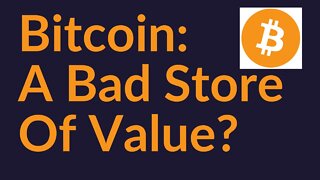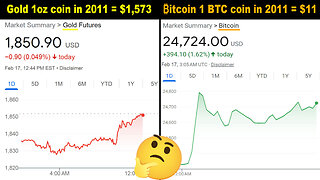#202 Store of Value
A "store of value" is an economic and financial term that refers to an asset or form of wealth that can be saved, preserved, and used in the future to maintain its value or purchasing power. In other words, it is an asset that can be reliably held and exchanged for goods or services at a later time without significant loss of value.
Some key characteristics of a good store of value include:
Stability of Value: A store of value should generally maintain its value over time, or at least not experience significant fluctuations in value. Assets that are subject to rapid and unpredictable price changes are not considered reliable stores of value.
Liquidity: It should be relatively easy to convert the asset into a medium of exchange (e.g., cash) when needed. Liquid assets can be quickly sold or traded without incurring substantial transaction costs.
Durability: A store of value should have a reasonable degree of durability, meaning it can withstand wear and tear over time without substantial loss of value. For example, gold and real estate are considered durable assets.
Divisibility: Ideally, a store of value should be divisible into smaller units. This makes it easier to use for various transactions, both large and small.
Universal Acceptance: The more widely accepted an asset is as a store of value, the more valuable it becomes. This is why currencies issued by governments (fiat currencies) are often used as stores of value, as they are generally accepted for transactions within a specific jurisdiction.
Common examples of stores of value include:
Precious Metals: Historically, precious metals like gold and silver have been used as stores of value due to their stability and durability.
Real Estate: Property and real estate investments can serve as stores of value because they tend to appreciate in value over time.
Fiat Currencies: In many countries, government-issued fiat currencies like the US dollar, Euro, or Japanese yen are used as stores of value, even though they may lose value over time due to inflation.
Collectibles: Some people invest in valuable collectibles such as art, rare stamps, or vintage cars, considering them as stores of value.
Cryptocurrencies: Some cryptocurrencies like Bitcoin are considered by some as digital stores of value due to their limited supply and the belief that they can preserve value over time.
It's important to note that the effectiveness of an asset as a store of value can vary over time and across different economic conditions. Factors such as inflation, economic stability, and market sentiment can all influence the suitability of an asset as a store of value. Additionally, individuals may have different preferences and risk tolerances when choosing assets for this purpose.
www.antharas.co.uk/ companies website or top book distributors!
#BusinessStrategy
#Entrepreneurship
#Leadership
#Management
#Marketing
#Finance
#Startups
#Innovation
#Sales
#SmallBusiness
#CorporateCulture
#Productivity
#SelfDevelopment
#SuccessStories
#PersonalBranding
#Networking
#Negotiation
#BusinessEthics
#TimeManagement
#GrowthStrategies
#MarketAnalysis
#BusinessPlanning
#FinancialManagement
#HumanResources
#CustomerExperience
#DigitalTransformation
#Ecommerce
#SocialMediaMarketing
#BusinessCommunication
-
 18:32
18:32
Richest You with Tom Sweeney
3 years agoWhat is a Store of Value?
1181 -
 0:45
0:45
Crypto Crow
1 year agoBitcoin as Store Of Value
8 -
 18:08
18:08
Bitcoin University
1 year agoIs Bitcoin A Bad Store Of Value?
34 -
 16:10
16:10
Bitcoin University
1 year agoHow To Store Your Money Outside The Financial System
22 -
 7:06
7:06
Carolina Capital Management
7 months agoHow to ADD Value to a Self-Storage Facility
8 -
 13:50
13:50
MAGA Lion HAT
1 year agoIs Gold a better 'Store of Value' than ₿itcoin❓ 🤔
85 -
 16:32
16:32
Occuprise Network
7 months agoValue For Value
25 -
 14:59
14:59
Bitcoin University
10 months agoDoes Bitcoin Have Intrinsic Value?
38 -
 10:18
10:18
alexquezada
11 months agoSelf Storage Value DOUBLED | Steal My Strategy
3 -
 7:09
7:09
Website with WordPress
1 year ago8 Simple Techniques For Saving and Investing
24